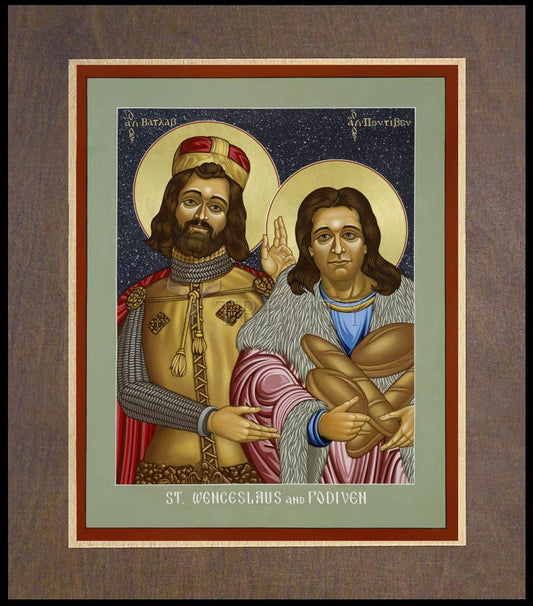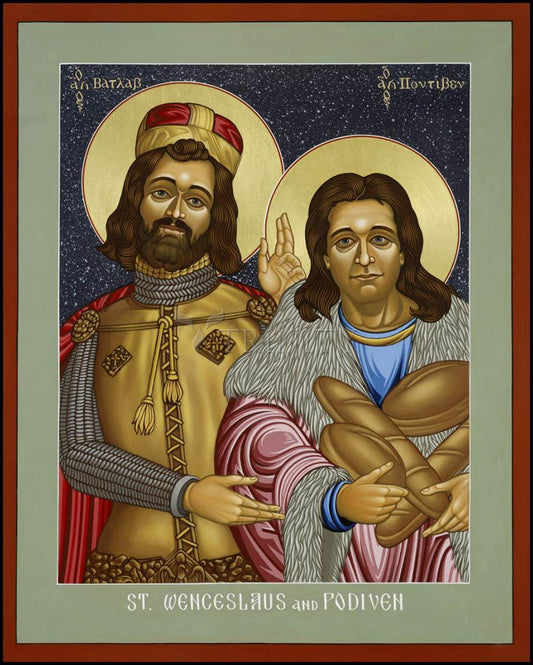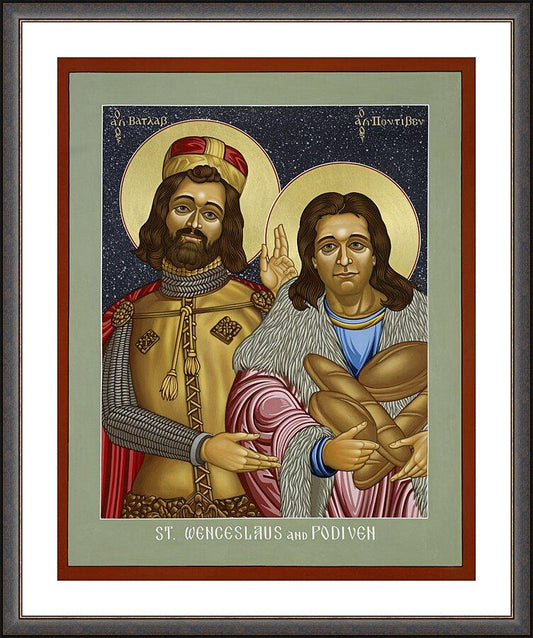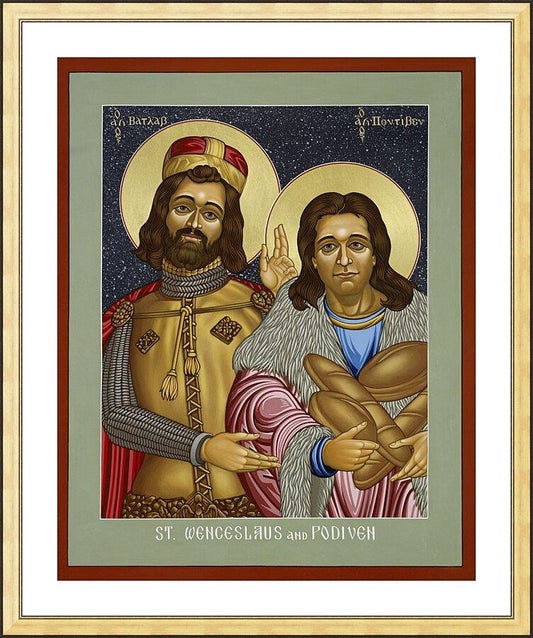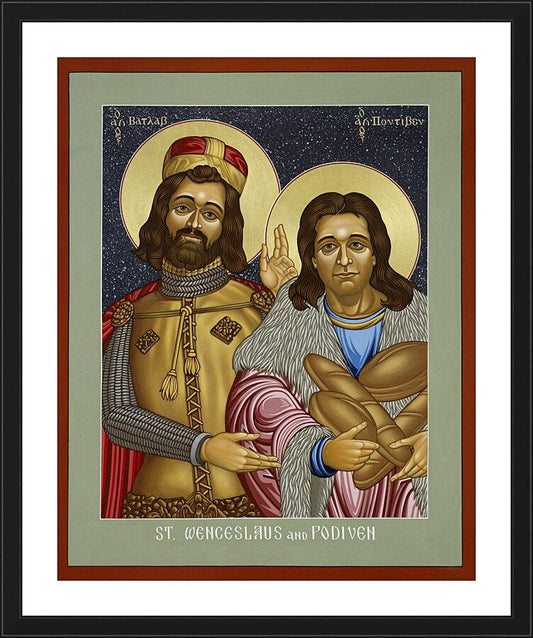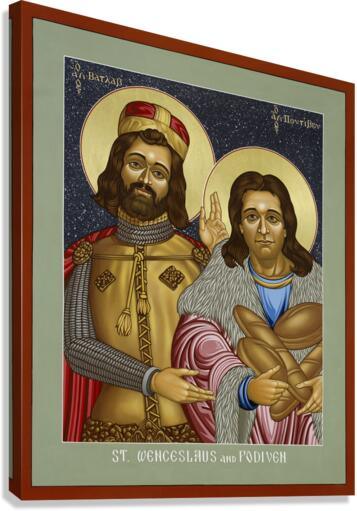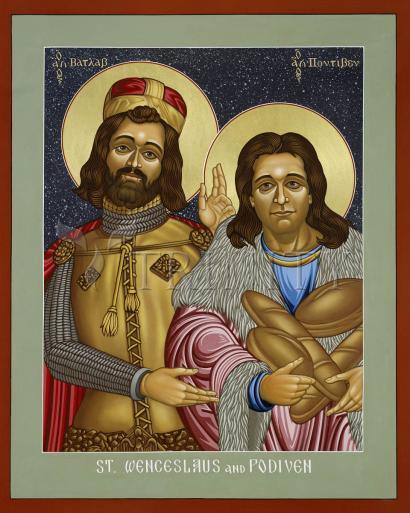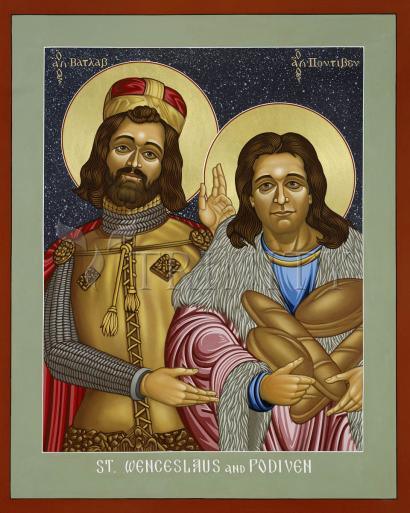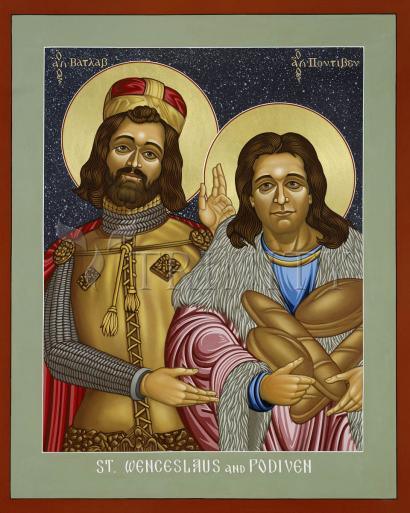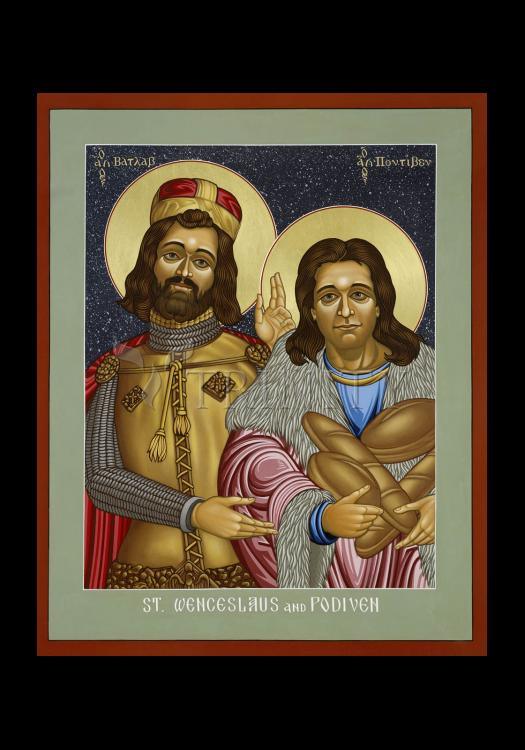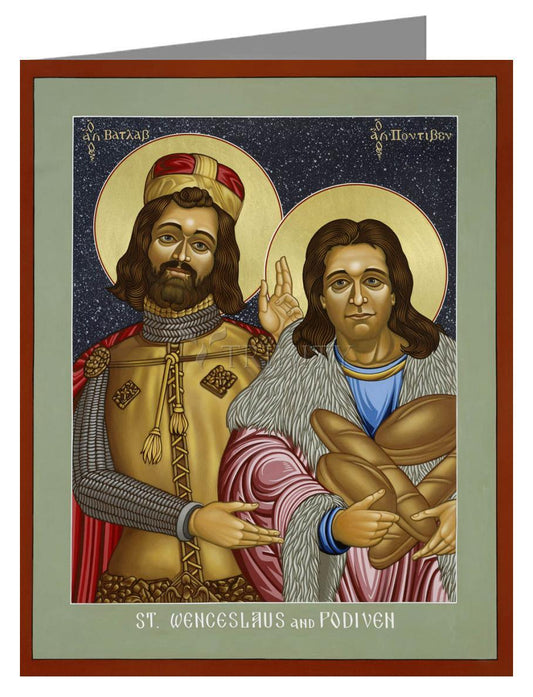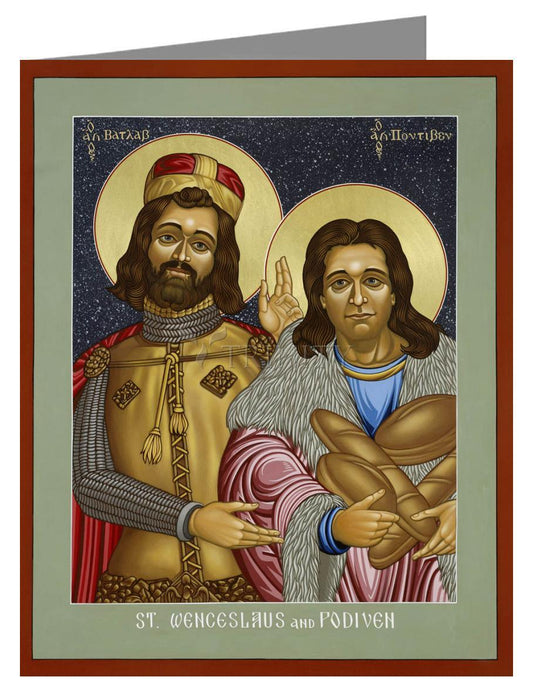Wencelsaus was the Duke of Bohemia and grandson and student of Saint Ludmilla. He ascended to power when his father was killed during a pagan backlash against Christianity, which he fought against with prayer and patience. He was murdered by his brother Boleslaus at the door of a church; killed for political reasons, but normally listed as a martyr since the politics arose from his faith. Miracles are reported at his tomb.
Born: 907 at Prague, Bohemia (Czech Republic)
Died: Martyred September 28, 929 at Stara Boleslaw
Readings:
At the death of Vratislaus, the people of Bohemia made his son Wencelsaus their king. He was by God's grace a man of utmost faith. He was charitable to the poor, and he would clothe the naked, feed the hungry, and offer hospitality to travelers according to the summons of the Gospel. He would not allow widows to be treated unjustly; he loved all his people, both rich and poor; he also provided for the servants of God, and he adorned many churches.
The men of Bohemia, however, became arrogant and prevailed upon Boleslaus, his younger brother. They told him, "Your brother Wenceslaus is conspiring with his mother and his men to kill you."
On the feasts of the dedication of the churches in various cities, Wenceslaus was in the habit of paying them a visit. One Sunday he entered the city of Boleslaus, on the feast of Saints Cosmas and Damian, and after hearing Mass, he planned to return to Prague. But Boleslaus, with his wicked plan in mind, detained him with the words, "Why are you leaving brother?"
The next morning when they rang the bell for matins, Wencelaus, on hearing the sound, said, "Praise to you, Lord; you have allowed me to live to this morning." And so he rose and went to matins. Immediately Boleslaus followed him to the church door. Wenceslaus looked back at him and said, "Brother, you were a good subject to me yesterday."
But the devil had already blocked the ears of Boleslaus, and perverted his heart. Drawing his sword, Boleslaus replied, "And now I intend to be a better one!" With these words, he struck his brother's head with his sword.
But Wenceslaus turned and said, "Brother, what are you trying to do?" And with that he seized Boleslaus and threw him to the ground. But one of Boleslaus' counselors ran up and stabbed Wenceslaus in the hand. With his hand wounded, he let go of his brother and took refuge in the church. But two evil men struck him down at the church door; and then another rushed up and ran him through with a sword. Thereupon, Wenceslaus died with the words, "Into your hands, O Lord, I commend my spirit."
"Excerpts from an old Slavic legend about Saint Wenceslaus



